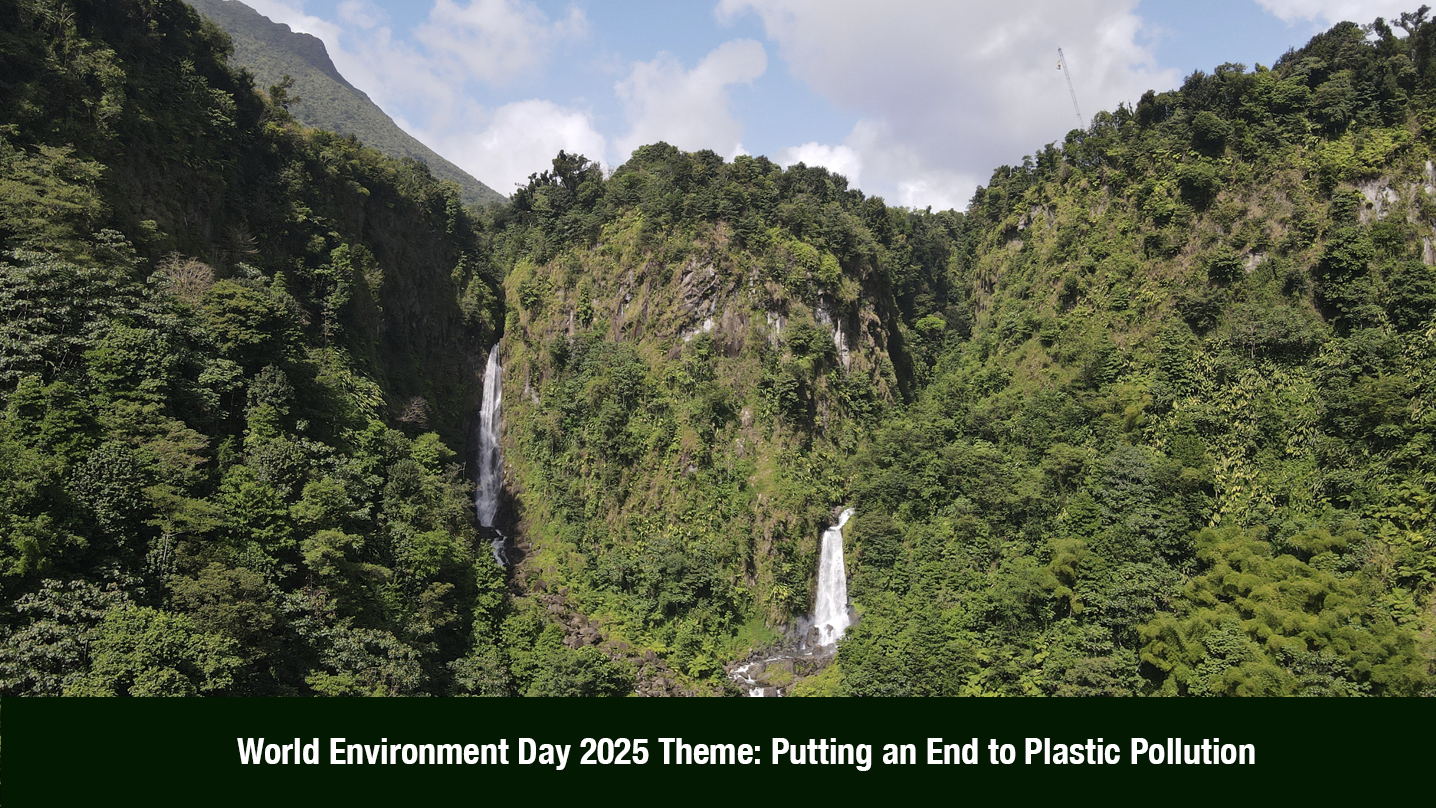OECS Marks World Environment Day with Renewed Commitment to Protecting Our Shared Future
OECS Press Release
Approximately 71 percent of the Earth’s surface is covered with water, while land makes up the remaining 29 percent. Coincidentally, cells of the human body are also composed of roughly 70 percent water by weight—an awe-inspiring reminder that we are intrinsically connected to the planet we call home. The Earth supports all life: the air we breathe, the food we consume, and the water essential for hygiene and health all come from our environment. But the quality of these life-sustaining elements is not guaranteed. It is determined by how we care for our planet today. The future our children inherit will be shaped by the choices we make now.
As we observe World Environment Day, the Organisation of Eastern Caribbean States (OECS) joins the global community in reflecting on the importance of environmental stewardship. At the OECS, the thought from Native American wisdom has almost become our mantra: We do not inherit the Earth from our ancestors; we borrow it from our children.”
The Revised St Georges Declaration of Principles for Environmental Sustainability (through the embedded 2040 Consensus) “affirms that the peoples of the OECS are entitled to a healthy, resilient and productive life in harmony with nature, which may be achieved only through a broad alliance of people, governments, civil society, academia, the private sector and development partners, all working together”.
Through its Environmental Sustainability Division, the OECS Commission, together with Member States, and regional and international partners, is implementing an integrated portfolio of projects aimed at preserving the environment and strengthening the region’s resilience, while improving the lives and livelihoods of OECS citizens through the sustainable use of our natural resources. These include:
- The European Union-funded (EU) BioSPACE Project, which supports biodiversity conservation across the region through protected areas management, community engagement, and sustainable livelihoods, helping to secure marine and terrestrial ecosystems for future generations.
- The EU-funded Integrated Landscape Management (ILM) Project has the main goal of making better use of land for agriculture, improving food security, supporting climate change action, and protecting ecosystems and the vital services they provide. The project is expected to support climate-smart and sustainable farming, enhance coordination in land use planning, and contribute to national plans, including the National Adaptation Plans (NAPs), Nationally Determined Contributions (NDCs), and National Biodiversity Strategies and Action Plans. It will also help advance REDD+ strategies to reduce deforestation and improve overall ecosystem management.
- The CDB/IDB/GCF funded GEOBUILD Project and the World Bank-funded CEGEB Project, which are advancing clean and renewable energy in OECS Member States, promote sustainable energy solutions to reduce greenhouse gas emissions and dependence on fossil fuels, while enhancing energy security and economic resilience.
- The recently concluded Recycle OECS Project, funded by the European Union, and the ReMLit Project, funded by the Government of Norway, focused on capacity, infrastructure and awareness around recycling and waste reduction to protect the region’s natural beauty and marine environments.
- The OECS 30x30 Transformational Programme of which the main objective is to support the OECS Member States through the COM:ES process to streamline the Kunming Montreal Global Biodiversity Framework while mitigating climate change and achieving socio-economic benefits.
- The Unleashing the Blue Economy in the Caribbean (UBEC) project, funded by the World Bank, is designed to contribute to the positioning of OECS as a model blue economy region by helping to boost the enabling environment and scale up ccess to finance and investment to address transboundary issues such as fisheries, tourism and marine waste management.
The Earth is not a resource to be exploited endlessly, but a place we are to care for and live in harmony with. Every drop of water, every breath of clean air, and every forest tree matters. The OECS urges citizens, partners, and governments to act decisively and compassionately because the Earth can only continue to give if we learn to give back.
As we individually and collectively contribute to the 2025 World Environment Day theme “Putting an End to Plastic Pollution”, let us commit to protecting this Earth, not just for ourselves, but for those who are yet to come.
Danny Moonie
OECS Communications Unit
